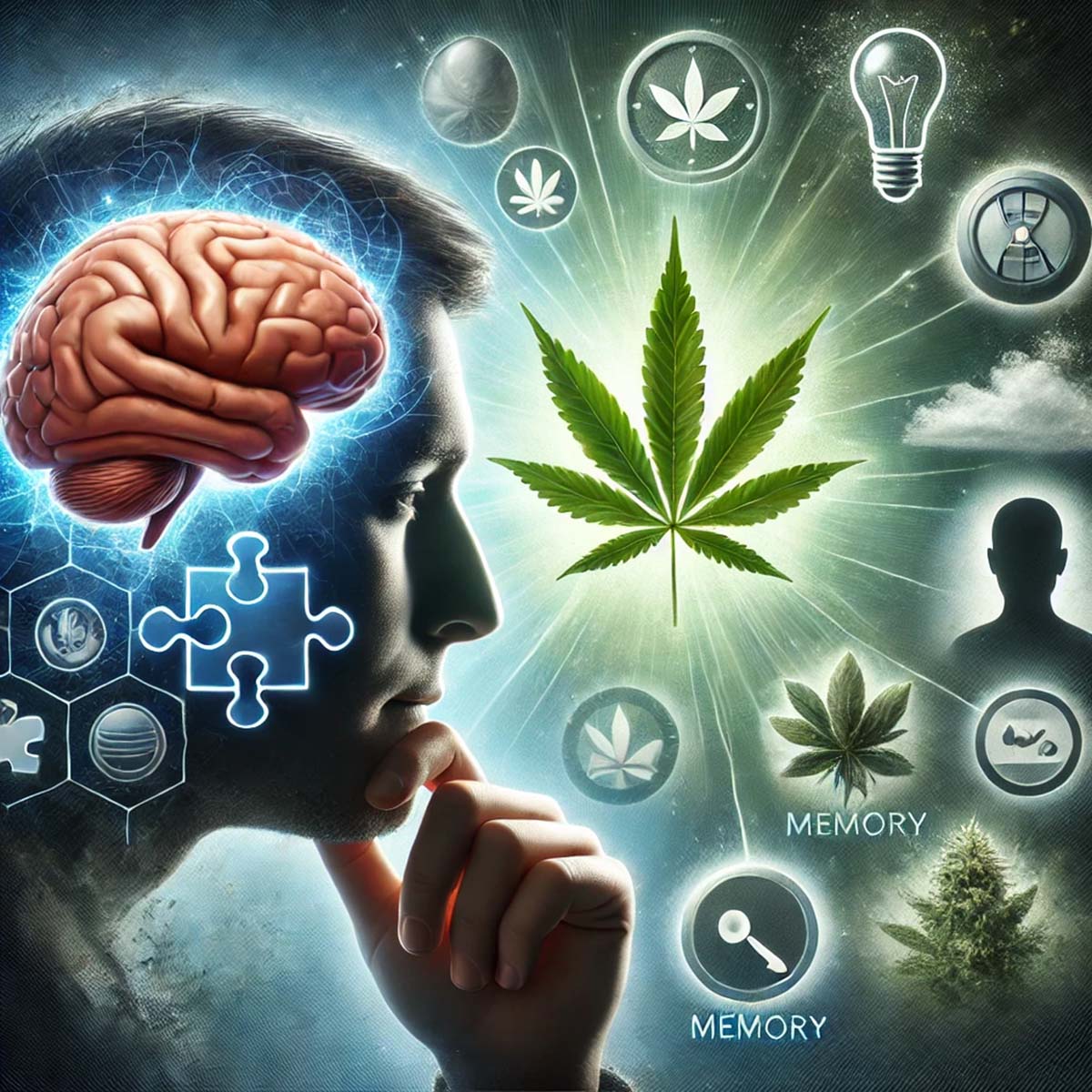Cannabis has long been associated with its effects on memory, often leading to concerns about its impact on cognitive function. However, research on the relationship between cannabis and memory is complex and nuanced. This article explores how cannabis affects different types of memory, the potential benefits, and the risks.
Understanding Memory
Memory can be categorized into several types:
- Short-term Memory: The ability to hold a small amount of information in an active, readily available state for a short period.
- Long-term Memory: The continuous storage of information.
- Working Memory: A cognitive system that temporarily holds information available for processing.
Cannabis and Short-term Memory
- THC and Short-term Memory
- Impairment: THC, the psychoactive component of cannabis, can impair short-term memory by affecting the hippocampus, a region of the brain involved in the formation of new memories .
- Dose-dependent Effects: The impact on short-term memory can vary depending on the dose and frequency of use. Higher doses and frequent use are more likely to cause significant impairment .
Cannabis and Long-term Memory
- CBD and Long-term Memory
- Neuroprotective Effects: CBD, a non-psychoactive component of cannabis, has shown potential neuroprotective properties. Some studies suggest that CBD might protect against memory impairment and even promote neurogenesis (the growth of new neurons) .
- Therapeutic Potential: CBD is being explored for its potential to help with neurodegenerative diseases, such as Alzheimer’s disease, which affect long-term memory .
Cannabis and Working Memory
- Mixed Effects on Working Memory
- THC: THC can negatively impact working memory, making it harder to hold and manipulate information for tasks .
- CBD: CBD may have a neutral or even beneficial effect on working memory, though more research is needed to fully understand its impact .
Potential Benefits of Cannabis on Memory
- Stress and Anxiety Reduction
- Improved Cognitive Function: By reducing stress and anxiety, cannabis, particularly CBD, can potentially improve overall cognitive function, including memory .
- Pain Management
- Focus and Concentration: Managing chronic pain with cannabis can help individuals focus better, indirectly benefiting their memory and cognitive functions .
Risks and Considerations
- Cognitive Impairment
- THC-induced Impairment: High doses of THC can lead to significant short-term memory impairment, which may affect daily activities .
- Age and Frequency of Use
- Adolescents: Young users are more susceptible to the negative effects of THC on memory and cognitive development .
- Chronic Use: Long-term, frequent use of cannabis can lead to persistent memory problems .
- Individual Variability
- Different Responses: The effects of cannabis on memory can vary widely among individuals, influenced by factors such as genetics, overall health, and the specific strain of cannabis used .
Consultation with Healthcare Providers
It is crucial for individuals considering cannabis for memory-related issues to consult with healthcare professionals. They can provide personalized advice and ensure that cannabis is used safely and effectively.
Final Thoughts
The relationship between cannabis and memory is multifaceted, with both potential benefits and risks. While THC can impair short-term and working memory, CBD shows promise for neuroprotection and long-term memory benefits. Understanding these effects and consulting with healthcare providers can help individuals make informed decisions about using cannabis.



